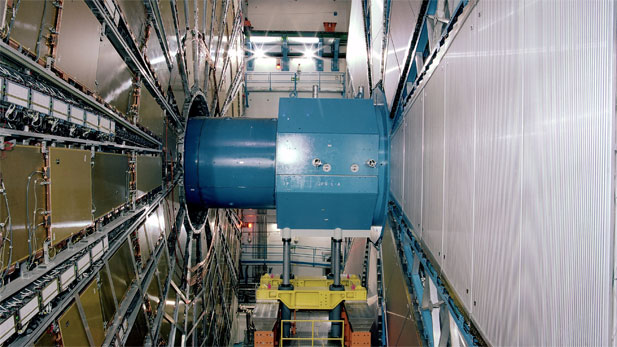 Large Hadron Collider’s Atlas Detector, at CERN near Geneva.
Credit: Courtesy of © Tim Cragg
Large Hadron Collider’s Atlas Detector, at CERN near Geneva.
Credit: Courtesy of © Tim Cragg
On July 4, 2012, scientists at the giant atom smashing facility at CERN announced the discovery of a subatomic particle that seems like a tantalizingly close match to the elusive Higgs Boson, thought to be responsible for giving all the stuff in the universe its mass. Since it was first proposed nearly 50 years ago, the Higgs has been the holy grail of particle physicists: finding it completes the “standard model” that underlies all of modern particle physics. Now CERN’s scientists are preparing for the Large Hadron Collider’s second act, when they restart the history-making collider, running at higher energy — hoping for the next great discovery that will change what we know about the particles and forces that make up our universe.
Nova: Big Bang Machine, Wednesday at 9 p.m. on PBS 6.
 Large Hadron Collider’s Atlas Detector, at CERN near Geneva.
Credit: Courtesy of © Tim Cragg
Large Hadron Collider’s Atlas Detector, at CERN near Geneva.
Credit: Courtesy of © Tim Cragg
 Large Hadron Collider’s Atlas Detector, at CERN near Geneva.
Credit: Courtesy of © Tim Cragg
Large Hadron Collider’s Atlas Detector, at CERN near Geneva.
Credit: Courtesy of © Tim Cragg
By submitting your comments, you hereby give AZPM the right to post your comments and potentially use them in any other form of media operated by this institution.